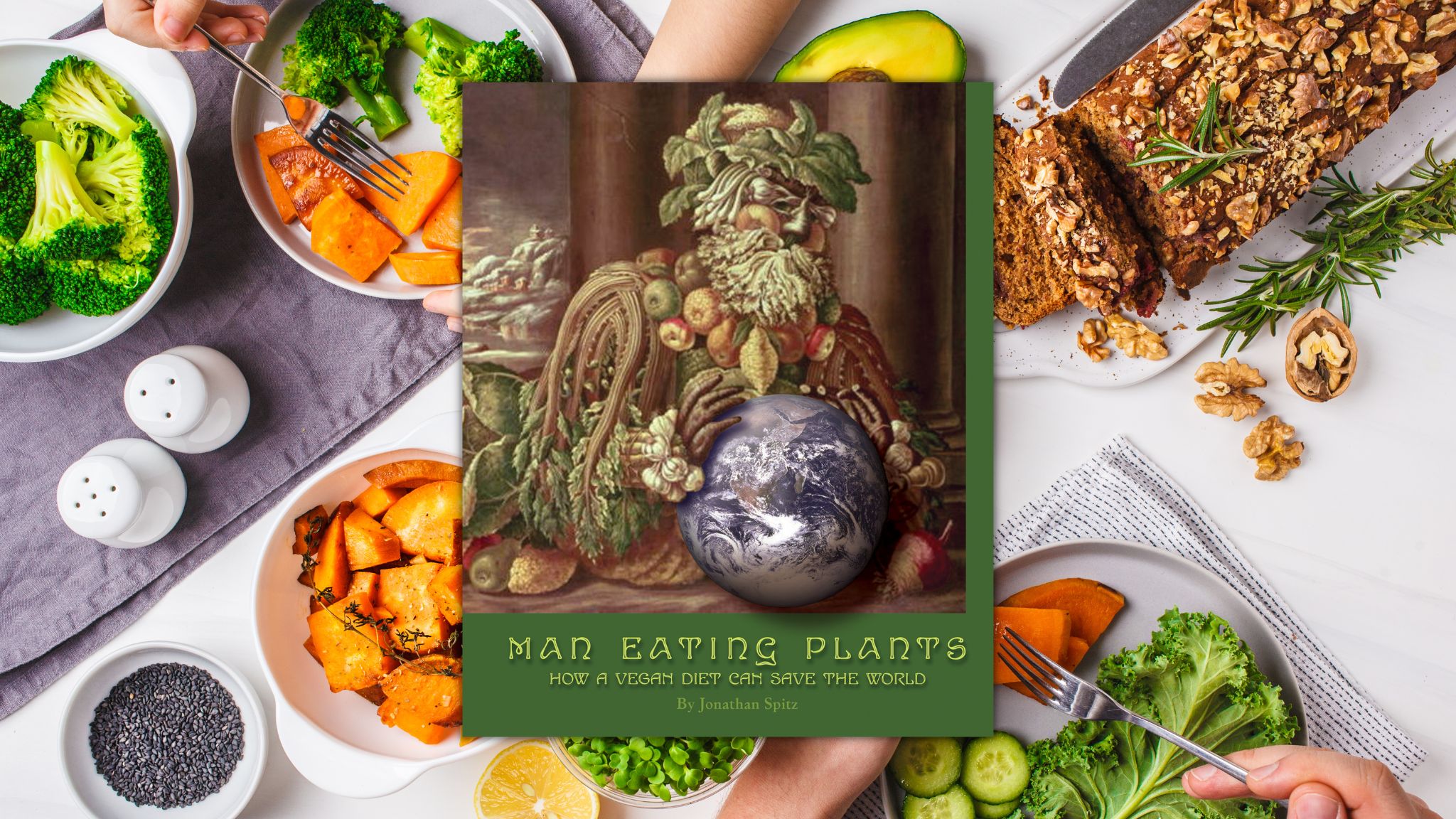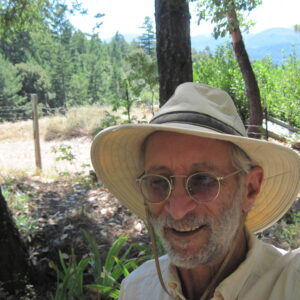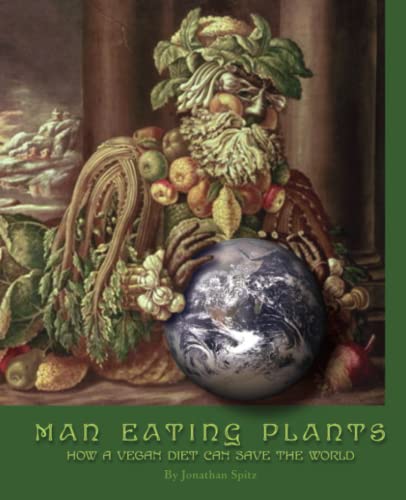
Man Eating Plants by Jonathan Spitz
What’s it About?
Man Eating Plants: How a Vegan Diet Can Save the World weaves together published works by the world’s leading scientists and historians to narrate how we can save the world by transitioning back to our natural plant-based diet.
Within the nutrition/wellness sphere, fad diets have been some of the biggest trends of the last decade. Despite the hype and endorsements from high profile celebrities however, the vegan diet is the only one that has stood the test of time, and in his new book Man Eating Plants, author Jonathan Spitz explains not just why this way of living is optimal for health, but in fact why it just might save the world.
Over the past two million years, humans have evolved from an obscure herbivorous species living in the tropical forests of equatorial Africa to become the world’s most populous apex predator. Unfortunately, this fateful change in the human diet to include animal sourced foods is the leading cause in the 21st century of chronic degenerative disease, runaway climate change, and mass species extinction. Man Eating Plants: How a Vegan Diet Can Save the World weaves together published works by the world’s leading scientists and historians to narrate how we arrived at these three interrelated crises and how we can save the world by transitioning back to our natural plant-based diet.
Arranged chronologically in terms of timeline and strategically in order to facilitate an easily digestible experience for readers, Spitz’s case for this lifestyle spares no empirical detail. Covering everything from the evolution of the human diet and the history of agriculture to the inception of the animal industrial complex and the harm this does to our planet, and all written in Spitz’s clear and concise prose, Spitz’s book is comprehensive and chock full of empirically supported information.
A MASTERPIECE
My favorite subject in the novel was Spitz’s discussion of the optimal human diet and why one that is plant-based would aid in reducing the risk of conditions and diseases such as cancer, brain disease, high blood pressure and Parkinson’s.
“… It’s not just what we eat that counts, it’s also what we don’t eat. There is a tendency for people to rationalize their meat and junk food habits by thinking that if they just eat some fruit and veggies, that will counteract the disease causing effects of the cholesterol, saturated fat and animal protein in foods. The reality is that the only way to truly immunize yourself against the chronic degenerative diseases… is to follow an optimal, high-fiber, whole-food, plant based diet.”
Not only is the evidence Spitz puts forth eye-opening and quite convincing (I say this as an athlete who consumes large amounts of animal protein), it is also laid out in an accessible way that makes it easy for laymen to pick up and easily understand. Many treatises on nutritional science are dense and esoteric, only accessible to those in the field. Man Eating Plants eschews this style of writing while retaining the same breadth of information, making for an enlightening read for both experts and newcomers alike.
Spitz’s work is a masterpiece that serves as both a powerful case for the vegan diet and a warning to our current generation that the path we currently tread contains significant danger. Although the book itself will end, readers will come away with a new appreciation and healthy skepticism for both our environment and the food we put in our bodies.
About the author:

Jonathan Spitz is an environmental and animal rights activist. In 1990, after reading Diet for a New America by John Robbins, he realized that humans lacked the anatomy or physiology of apex predators and our true role in a sustainable ecosystem is as a plant-eating species. With this new understanding of the human place on the food chain, at the age of thirty-seven he adopted a plant-based vegan diet and began defending the rights of all animals to live free from human exploitation.
Through the 1990s, he served on the Board of Directors of the Willits Environmental Center to thwart the relentless destructive forces of local economic development. In the 2000s and 2010s, he authored an op/ed column, Connecting…the…Dots, that focused on environmental and animal rights issues for his hometown newspaper, The Mendocino County Observer.
For thirty years, Jonathan kept abreast of the most current studies on the complex relationship between the human food niche and the Earth’s ecosystems. When he realized there were no books in the ecological canon telling the story of how humans evolved from an obscure herbivorous species to become the world’s most populous carnivorous apex predator species, and how this change in human diet has led to epidemics of chronic degenerative disease, runaway climate change and mass species extinction, he decided to write it himself.
Jonathan has lived in Mendocino County on California’s North Coast since the 1980s.

Publish Date: 1/19/2023
Author: Jonathan Spitz
Page Count: 510 pages
Publisher: 6th Sense Press
ISBN: 9781662932885

